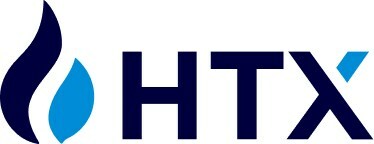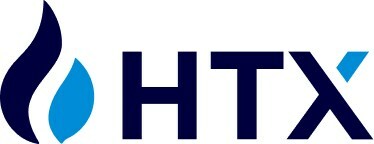
NEW YORK, Jan. 13, 2023 (GLOBE NEWSWIRE) — Bragar Eagel & Squire, P.C., a nationally recognized shareholder rights law firm, reminds investors that class actions have been commenced on behalf of stockholders of Veru Inc. (NASDAQ: VERU), The Gap, Inc. (NYSE: GPS), Singularity Future Technology Ltd. (NASDAQ: SGLY), and F45 Training Holdings, Inc. (NYSE: FXLV). Stockholders have until the deadlines below to petition the court to serve as lead plaintiff. Additional information about each case can be found at the link provided.
Veru Inc. (NASDAQ: VERU)
Class Period: May 11, 2022 – November 9, 2022
Lead Plaintiff Deadline: February 3, 2023
Veru is primarily an oncology-based biopharmaceutical company that develops drugs for the management of breast and prostate cancers. Veru also develops medicines for COVID-19 and other diseases related to viral and acute respiratory distress syndrome (“ARDS”), and has two FDA-approved products for sexual health.
Veru “opportunistically” developed sabizabulin (VERU-111), an orally administered “microtubule disruptor” – a drug that inhibits a virus’ ability to replicate itself – for the treatment of COVID-19 in hospitalized patients at high risk for ARDS. Veru had originally developed sabizabulin with the intention of using it as a treatment for prostate cancer. In January 2022, however, the FDA granted Veru’s COVID-19 program Fast Track designation. At the time, there was no authorized or approved treatment for hospitalized patients with severe COVID-19 infections.
Throughout the Class Period, Defendants made false and/or misleading statements, as well as failed to disclose material adverse facts about the data from the sabizabulin Phase 3 trial and the Company’s interactions with the FDA. Specifically, Veru misled its shareholders to believe that the data from the Phase 3 trial was sufficient to support Emergency Use Authorization (“EUA”) and even the submission of a New Drug Application (“NDA”) without any further studies. VERU’s filings therefore concealed the true risks faced by the Company in gaining approval for its EUA request.
Veru conducted a randomized, double-blind Phase 3 trial of sabizabulin’s effectiveness in treating hospitalized adults with moderate to severe COVID-19 at high risk for ARDS. The Phase 3 study sought to enroll 210 patients and evaluate mortality after 60 days of treatment.
On April 11, 2022, Veru issued a press release announcing that the company would be terminating sabizabulin’s Phase 3 trial early on the basis of positive interim data, after Veru’s Independent Data Safety Monitoring Committee conducted an interim analysis of the first 150 patients randomized into the study. Veru reported that sabizabulin “resulted in a clinically and statistically meaningful 55% relative reduction in deaths” relative to the placebo group (45% mortality at 60 days for the placebo group vs. 20% mortality for the sabizabulin-treated group).
On an investor call held that same day, Veru’s Chairman, President, and Chief Executive Officer Mitchell Steiner, M.D. (“Steiner”) told investors that Veru had been in “constant dialogue with FDA” since receiving the Fast Track designation and that the Company “plan[ned] to meet with FDA to discuss the next steps” including submitting an application for Emergency Use Authorization (“EUA”) on the strength of the positive Phase 3 interim results. Steiner also addressed the placebo group’s 45% mortality rate, stating that this death rate “underscores how sick these patients really are.”
During the call, an analyst from Cantor Fitzgerald asked Steiner to “elaborate” on any differences in the standard of care between the placebo group and the sabizabulin-treated group in the Phase 3 trial. Steiner responded: “So, there are no imbalances with males and females and with standard of care is exactly – I mean, the system works, so the randomization works. So, there are no imbalances.”
Veru’s share price more than doubled on April 11, 2022, from an opening price of $5.99 per share to a closing price of $12.28.
On May 2, 2022, Veru announced that the FDA had granted the Company a preEUA meeting to discuss sabizabulin’s Phase 3 results, to be held on May 10, 2022.
On May 11, 2022, Veru issued a press release announcing that in the May 10, 2022, pre-EUA meeting, the FDA “agreed that the efficacy and safety data from the completed Phase 3 clinical study in hospitalized COVID-19 patients at high risk for acute respiratory distress syndrome are sufficient to support the submission of a request for Emergency Use Authorization (EUA).” The press release quoted Steiner as saying “The discussion with FDA in the Pre-EUA meeting has established a direct path forward to expedite the availability of sabizabulin to the high risk hospitalized patients with COVID-19 . . . In the Phase 3 COVID-19 clinical study, sabizabulin demonstrated a clear mortality benefit in hospitalized moderate to severe COVID-19 patients on current standard of care with no significant safety signals.”
The May 11, 2022 press release further stated that the FDA had “agreed that the current safety data available for sabizabulin is sufficient to support the safety portion of a request for EUA submission,” and that “additional safety data that would be collected during the use of sabizabulin under the EUA, if granted, will be sufficient to support an NDA submission, and furthermore, that no additional safety clinical studies are required.” Veru’s stock price rose from its closing price of $7.79 per share on May 10, 2022, the day of the pre-EUA meeting with the FDA to close at $13 per share on May 13, 2022 the day after Veru filed its 2022 Second Quarter 10-Q in which it reported on the results of its pre-EUA meeting with the FDA.
On June 7, 2022, Veru submitted an EUA request with the FDA for use of sabizabulin to treat COVID-19.
On September 7, 2022, the FDA scheduled an October 6, 2022 meeting of the Pulmonary-Allergy Drugs Advisory Committee (“AdCom”) to vote on whether sabizabulin should be granted EUA. Although AdCom recommendations are not binding, the FDA ordinarily follows them.
On September 19, 2022, it was announced that the FDA had postponed the AdCom meeting to November 9, 2022.
On August 11, 2022, Veru filed its Quarterly Report for the second quarter of 2022 on Form 10-Q with the SEC, which stated that during the May 10, 2022 pre-EUA meeting, the FDA had “agreed that no additional efficacy studies were required to support an EUA application or a new drug application (NDA)” for sabizabulin, that “no additional safety data was required,” and that “[t]he FDA agreed that the request for the EUA is supported by efficacy and safety [data] from our positive Phase 3 COVID-19 study . . . and no additional clinical trials are required to support an NDA submission.”
On November 9, 2022, the AdCom voted against granting Veru’s EUA request by an 8-5 margin. One AdCom member who voted against approval explained that there was “no direct evidence to support [sabizabulin’s] antiviral activity.” Veru’s stock price plummeted on the news, falling from its closing price of $15.01 per share on November 8, 2022 to close at $6.97 per share on November 10, 2022, a 54% one-day drop, wiping out over $640 million in market capitalization.
As a result of Defendants’ wrongful acts and omissions, and the precipitous decline in the market value of the Company’s securities, Plaintiff and other Class Members have suffered significant losses and damages.
For more information on the Veru class action go to: http://bespc.com/cases/VERU
The Gap, Inc. (NYSE: GPS)
Class Period: November 24, 2021 – July 11, 2022
Lead Plaintiff Deadline: February 3, 2023
According to the Complaint, the Company made false and misleading statements to the market. Gap suffered from significant management errors in its Old Navy brand, specifically related to the “BODEQUALITY” program which impacted its financial results. BODEQUALITY caused inventory risks to grow, despite the Company’s claims to investors. Based on these facts, the Company’s public statements were false and materially misleading throughout the class period. When the market learned the truth about Gap, investors suffered damages.
For more information on the Gap class action go to: http://bespc.com/cases/GPS
Singularity Future Technology Ltd. (NASDAQ: SGLY)
Class Period: September – December 2021
Lead Plaintiff Deadline: February 3, 2023
Between September and December of 2021, Defendants—including Jie who was later revealed to be a convicted fraudster on the run from Chinese authorities—engaged in a scheme of material misrepresentations and omissions to convince Plaintiffs to invest millions of dollars in Singularity’s purported cryptocurrency business that Defendants falsely claimed would earn Plaintiffs “10x” investment returns in a short period of time.
Relying on Defendants’ representations, Plaintiffs agreed to invest over $4.4 million for shares in Singularity pursuant to terms and conditions of a Securities Purchase Agreement (“SPA”) dated on or about December 14, 2021.
However, before the ink was dry on the SPA, Singularity began breaching its provisions.
Within days of Plaintiffs’ monies being wired to Singularity’s bank account, Singularity used those funds to pay off warrants held by earlier investors despite the fact that the SPA had represented that no warrants to other investors were outstanding and that Plaintiffs’ money would be used to further Singularity’s business operations.
Additional breaches of the SPA by Singularity include its failure to file required periodic reports (e.g., Form 10-Q) with the Securities and Exchange Commission (“SEC”), rendering as useless what had been a crucial term of the SPA—namely, the opportunity for Plaintiffs to timely receive unrestricted, free-trading shares of Singularity common stock directly from the issuer at a discount.
Singularity has since categorically failed to cure its regulatory filing deficiencies despite having ample financial resources to do so, thereby further destroying the benefit of what Plaintiffs bargained for in the SPA.
Because Singularity has failed to honor and breached the terms of the SPA, Plaintiffs are currently unable to remove the restrictive legends on their shares of stock and sell them into the public markets. In duping Plaintiffs to make their investment and then immediately breaching obligations under the SPA, Defendants have violated federal securities laws, committed common law fraud, and breached their contractual obligations.
To date, Singularity has failed and refused to return any of the monies that Plaintiffs invested.
As a result of Defendants’ wrongful conduct, Plaintiffs are entitled to an award for damages, punitive damages, attorneys’ fees, and the costs of bringing this action.
For more information on the Singularity class action go to: http://bespc.com/cases/SGLY
F45 Training Holdings, Inc. (NYSE: FXLV)
Class Period: Pursuant to the F45’s July 2021 IPO
Lead Plaintiff Deadline: February 6, 2023
F45 is a fitness franchisor with a business model based on rapid growth through the franchising of low-overhead fitness facilities. The Company was founded in Sydney, Australia in 2013 and, by the time of the Company’s July 16, 2021 initial public offering more fully described below, maintained 2,801 franchises in 68 countries.
Plaintiff brings this class action on behalf of all persons and entities that purchased or otherwise acquired the common stock (“stock” or “shares”) of F45 pursuant and/or traceable to the Company’s false and/or misleading Form S-1 Registration Statement and accompanying Prospectus and Supplemental Prospectus (collectively, the “Registration Statement”) issued in connection with the Company’s July 16, 2021 initial public offering of 18.75 million shares of common stock, priced at $16 per share (the “July 2021 IPO” or the “Offering”), to pursue remedies under Sections 11 and 15 of the Securities Act of 1933 (the “Securities Act”).
As set forth in the Prospectus issued in support of the July 2021 IPO, the Company asserted that the proceeds would be used, inter alia, to repay indebtedness, to complete the purchase of Flywheel indoor cycling studio, to pay bonuses to certain employees, to pay expenses related to the offering, and for working capital and general corporate purposes.
In support of the July 2021 IPO F45’s Registration Statement professed and represented its advantage over traditional owner-operated fitness facilities both because the franchise model “has enabled us to open new studios at an accelerated pace versus the owner-operator model” and because it generated quick revenue for the Company because “[f]or the majority of franchises that we sell, we receive an upfront payment from the franchisee.” However, due to the material misstatements and omissions contained therein, Defendants’ Registration Statement was false and misleading regarding the Company’s revenue stream and its ability to maintain its rapid expansion business model.
In its Prospectus, the Company noted that it intended to emphasize the growth of multi-unit franchisees over single-unit franchisees, stating that as of March 31, 2021, “[a]pproximately 49% of Total Franchises Sold are owned by single-unit franchisee owners, with the other 51% owned by multi-unit franchisees.” The Company stated that “[a]s we pursue opportunities to develop multi-unit franchise systems with financial partners, we expect the percentage of multi-unit franchisees to increase over time.” However, at the time, the Registration Statement did not disclose that F45 could not maintain new franchise growth because it was offering more favorable payment terms to multi-unit franchisees. The Registration Statement merely represented that “[t]he upfront establishment fee is payable by the franchisee upon signing a new franchise agreement….”
In truth, as of the July 2021 IPO and as the Company would later acknowledge, F45 provided for “modified” payment terms for “large multiunit deals.” This would and did ultimately result in material increases to accounts receivable and lower cash flow for the Company. F45’s approach to starting new franchises was not sustainable over the long term as the Company was not being, and would not be, repaid by multi-unit franchise owners quickly enough to maintain significant franchise growth. Indeed, in the first and second quarters of 2022, F45reported just 117 and 92 new franchise openings, respectively, compared to 96 studio openings in the first quarter of 2020, when the COVID-19 pandemic began. This lackluster pace of growth was accompanied by a massive and unsustainable increase in F45’s accounts receivable and a similar, and equally unsustainable, decrease in its cash and cash equivalents. These practices were not sustainable at the time of the IPO. When the Company could no longer sustain this defective business model, its growth rate and revenue plummeted.
Then, on July 26, 2022, just a year after the IPO, and just a little more than two months after reiterating its growth targets, F45 issued a press release titled “F45 Training Announces Strategic Update.” The press release described “strategic updates to align the Company more closely with macroeconomic conditions and current business trends and prepare for the next phase of studio and membership growth.” According to the press release, the Company’s “strategic updates” informed the market: (1) of a significant reduction in its financial guidance, from a range of $255 to $275 million to a new range of $120 to $130 million; (2) of a dramatic cut in the number of new exercise studios that it would open in 2022- down approximately 60% (or 350 to 450 new studios, versus 1,000); (3) that a $250 million credit line “will not be available”; (4) that it was letting go of about 110 employees, equaling approximately 45% of its workforce; and (5) that CEO, Adam Gilchrist, had resigned his position as CEO, effective July 24, 2022.
Importantly, more adverse news was disclosed in the July 26, 2022, “Strategic Updates.” The Company disclosed that for the full-year net franchises sold would be between 350 and 450, a fraction of the prior guidance of 1,500, and that full-year net initial studio openings would be between 350 and 450, compared to the prior guidance of 1,000.
As a consequence of its infirm business model and condition, existing at the time of the July 2021 IPO, F45 was also forced to substantially slash guidance for the full-year 2022 revenue to just between $120 million and $130 million, compared to the prior guidance of $255 million to $275 million, and full-year Adjusted EBITDA between $25 million and $30 million, compared to the prior guidance of $90 million to $100 million, signaling a dramatic decrease in its business and momentum.
The July 26, 2022 adverse disclosures caused the trading price of F45 to plunge over 60%, from a close at $3.51 on July 26 to close at $1.35 on July 27, 2022 and representing more than a 78% decline from its offering price of $16 per share on July 16, 2021 – just slightly more than a year earlier.
For more information on the F45 Training class action go to: http://bespc.com/cases/FXLV
About Bragar Eagel & Squire, P.C.:
Bragar Eagel & Squire, P.C. is a nationally recognized law firm with offices in New York, California, and South Carolina. The firm represents individual and institutional investors in commercial, securities, derivative, and other complex litigation in state and federal courts across the country. For more information about the firm, please visit www.bespc.com. Attorney advertising. Prior results do not guarantee similar outcomes.
Contact Information:
Bragar Eagel & Squire, P.C.
Brandon Walker, Esq.
Melissa Fortunato, Esq.
(212) 355-4648
investigations@bespc.com
www.bespc.com

![]()



